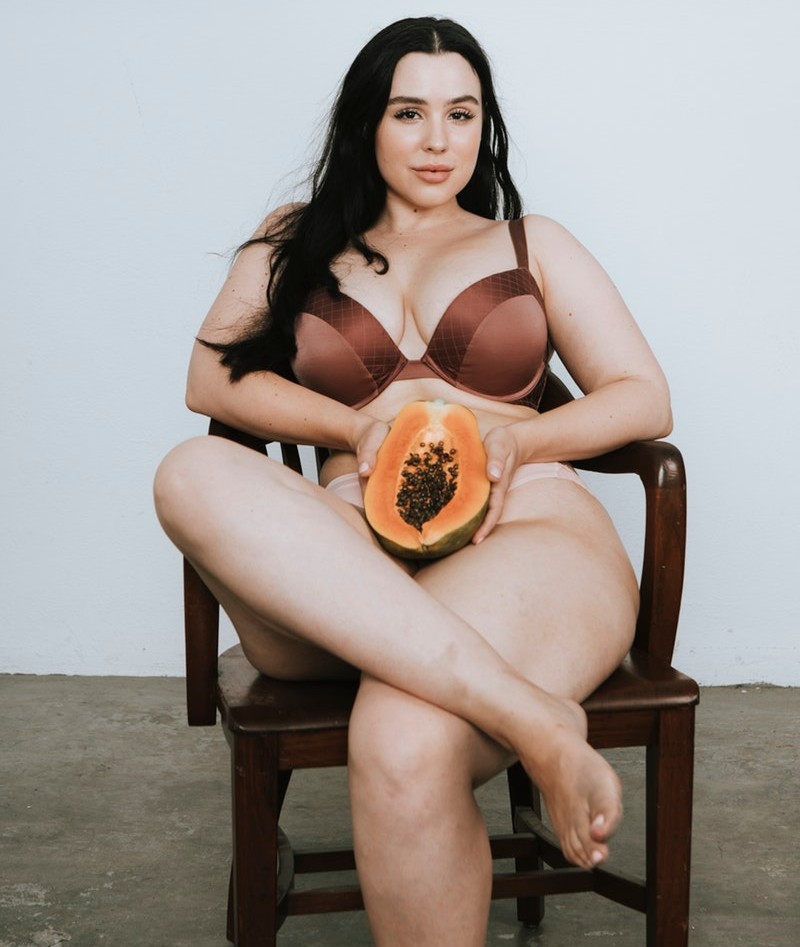
a Very Thorough review of period trackers

Rachel Besenyei
And the Allbodies team
Ten years ago, if you wanted to track your cycle, all you had was a pen and paper. Today, however, there are period and fertility tracking apps galore! Even Apple has launched a period tracking function in their Health app. Granted, this was five years later than Apple Health’s initial debut, during which they claimed the app would allow users to “monitor all of the metrics you’re most interested in.” The menstrual cycle didn’t make their initial list. Shocker.
Since, these days, a search for period trackers via the App Store produces an overwhelming number of options, it’s hard to know either where to begin or which features would best suit your unique needs, particularly when one study showed that 95% of the free period tracker apps are inaccurate (1).
Some apps call themselves “fertility trackers;” others, “natural contraceptives;” and yet others, “period trackers.” Some use language that makes it seem like if you menstruate, your job is to procreate. Most are not queer or trans friendly. Some don’t work for certain cycle lengths. Some use your data in ways you may be unaware of.
In this article, we’ve dug into a few of the most popular period tracker apps to help point you in the right direction. It’s worth noting that this is just a review of these apps’ product benefits, community insights, and any notable functionalities. This is not a comparison of app efficacy or effectiveness.
Clue
What They Call Themselves
Period and Cycle Tracker
For the most part, this app feels less about trying to get pregnant or avoid pregnancy, and more about tracking your cycle, though there is a focus on the fertile window. You can turn off that function via settings, for those who are not fertility focused. For those who are, you can opt-in to tracking your temps and cervical fluid.
What we like About It
- You get the most features from the free version of this app as compared to other apps
- You can log 30+ different tracking options that are actually really useful! These include your birth control, temperature, cramps, emotions, skin, hair, sleep, sex, pain, moods, cervical fluid, and more
- You can turn off the predictive nature of the app. This means that you can opt-out of the app's telling you when you will next menstruate or ovulate. This is helpful for those with irregular periods, those who can’t get pregnant, and/or those who don’t want their cycle-tracking to be focused on fertility
- The interface is very easy to see and understand
- The overall feel isn’t very gendered. They strive to use inclusive language and recognize their trans users. They even provide a whole article about the language that they use
- You can turn off all features based on procreating
- Good cycle-tracker for those on hormonal birth control as it is not relying on your temperature or cervical fluid. You can also track your birth control method
What We Don't Love
- To really track your fertility, you must track your Basal Body Temperature and your cervical fluid. While you can enter this info into the app, it isn't required, nor does the interface stress its importance. Because the interface is pre-set to show you your fertile window, this feels like a miss. If you are using this app while on hormonal birth control, this matters less as your fluid and temps may be altered and you may not be ovulating at all.
- There is no emphasis on understanding the phases of your cycle outside of the bleeding phase. Since they are a cycle-tracker, this also feels like a miss.
Who Can't Use It
There doesn’t seem to be anybody who can’t use it, although users with short and/or irregular periods have had difficulty when it comes to the predictive fertile window function. Remember, this is an app making predictions solely on the info you supply around bleeding and your symptoms, so if you are trying to get pregnant or avoid pregnancy, this may not be the best app for you.
What They Do With the Data
Their website states that “when you track in Clue, you contribute to an unprecedented data set that is forwarding the understanding of female health in a new frontier of health research.” The data collected from the app is aggregated into big data sets, which are then shared with health researchers at partner universities (we don’t know what the financial exchange is or isn’t here). Clue states that they will never sell your data or use it to serve you personalized ads. You can read their full privacy policy HERE
Anything else You Should Know?
While you get most of the functionality from the free version, you can also choose to “support Clue’s research” by paying $4.99 per month, or $39.99 per year, or a slightly lower price of $24.99 for 6 months for increased functionality.
Flo
What They Call Themselves
Period Tracker, Ovulation and Fertility Calendar
When you use this app you can pick your path:
- Track Cycle
- Get Pregnany
- Track Pregnancy
What We Like About It
- You get to use most of their features even in the free version (But be reminded, this means their business model is centered around your data)
- Out of all the apps, this has the most robust community features, including the ability to send private in-app messages to other users, and join chat groups.
- It also has the most robust opportunities for learning within the app; they offer in-app courses to learn about your body (though this is only a paid feature, and the courses themselves are not great)
- You can turn the predictive nature of this app off. This is helpful for those with irregular periods, those who can’t get pregnant, and/or those who don’t want their cycle tracking to be focused on fertility
- The app has helpful push notification prompts, such as one where you can ask the app to remind you to take your pill at a certain time every day. You can even include a personalized message to yourself!
What We Don't love about It
- The in-app courses are totally BORING, and the info is actually not all that helpful. The interface of the courses is also hard to navigate
- The way your cycle chart is displayed doesn’t provide very useful info, and neglects cycle phases other than menstruation and ovulation
- While you can turn the “predictive” nature of the app off, the entire app is really built around prediction. The best indicators of your menstrual cycle come from your Basal Body Temperature and your cervical fluid. Neither are required for use of this app. This means that they are showing you your cycle info based upon your bleeding and behavioral/symptom patterns only
- There is almost too much you can track on the app; it’s overwhelming. This app allows you to track your steps, gives info on whether you are trying to lose weight, track your diet… You can even hook it up to your health and sleep apps!
- This is not the most LGTBQ+- friendly. There was even a petition started by users to change this. We don't know what actions were taken as a result of this, but the app still uses gendered-language and colors everywhere
Who Can't Use It
There doesn’t seem to be anybody who can’t use it. But remember, this is an app making predictions solely on the info you supply about bleeding and your symptoms. So particularly if you experience irregular periods, and/or are trying to get pregnant or avoid pregnancy, this is likely not the best app for you.
What They Do with The Data
Flo has come under pressure for sharing data with Facebook, but they claim that they are now changing their policies to ensure this doesn’t happen. It’s not entirely clear how they are doing so.
Anything else Your Should Know?
Flo is the #1 most downloaded health app in the App Store. The free version covers most of the period tracking functionalities needed. The premium version allows for more personalized insights, health reports to share with your doctors, and pattern detections. Flo Premium costs $9.99 per month, or $49.99 for the year.
Kindara
What They Call Themselves
Ovulation and Fertility Tracker.
This app is generally geared towards cis-women trying either to get pregnant or to avoid pregnancy.
What We Like about It
- For those who know the Fertility Awareness Method, this app addresses it most directly. It requires you to provide your basal body temperature and the quality of your cervical fluid daily, so that it can actually learn your unique cycle and give individualized accuracy. Their chart interface looks like the old-school charts, so you can really see when your thermal shift (i.e. your change in temperature that indicates ovulation) occurs
- This app allows you to have the most agency and autonomy in learning your cycle of all the apps.
- You can turn the predictive nature of this app off. This is helpful for those with irregular periods. For those who practice FAM, being able to turn the predictive nature off also allows for more agency in learning your cycle (because ovulation and periods can change from cycle to cycle, so relying on predictions could be misleading)
- There is an emphasis on the importance of understanding all parts of the menstrual cycle - not just menstruation and ovulation.
- While not as robust as some of the other apps, there is a community forum with which you can connect with other users in-app. The interface, though, isn’t great
- You can track as many cycle-symptoms as you want (breast pain, mood swings, headaches, etc.)
- They also have an option to track “insemination,” which we have not seen in any other app!
- The app has helpful push notification prompts, such as one where you can ask the app to remind you to take your pill at a certain time every day. You can even include a personalized message to yourself!
What We Don't Love
The aesthetic could use a makeover, and the graph format may not be as useful for those less familiar with FAM.
Who Can't Use It
While there are specific recommendations for those with irregular cycles and for those with PCOS, there doesn’t seem to be anyone they say can’t use it.
If you are on hormonal birth control, this may not be the best app for you as temperature and cervical fluid can be altered by synthetic hormones, as well as stop you from ovulating altogether
What They Do With The Data
They do share with third parties (like Facebook) as well as use for marketing purposes. More here.
Anything Else You Should know?
Kindara costs $4.99 per month to use (or $39.99 for the year). You need a BBT thermometer for use (these are less than $10, and can be found on Amazon or at any drug store). That said, they are coming out with a new intra-vaginal tool to help you get the most precise temperature possible sometime this year!
Daysy
What they call themselves
Companion App to the Daysy Fertility tracker.
Daysy is actually more about the Daysy device itself than the companion app. The app is meant to be a tool to support the Daysy fertility tracking device, not the other way around. You can use the device without tracking on the app if you want to.
Daysy is specifically geared toward helping cis-women find their fertile window.
They do not call themselves contraception.
What we Like About it
- Daysy clarifies that their device is entirely centered around finding your fertile window (or the times you are most fertile). You are required to take your temperature daily with their device, which then analyzes your information against their special algorithm which incorporates data from 5 million menstrual cycles and 30 years of research
- It’s super simple to understand the device. A color-coded system lets you know when you are most, and least, fertile, as well as when it isn’t sure
- Daysy's support team not only helps with tech issues, but will also help you interpret your charts and data on the app. It is almost as though you have a personal health coach
- While the app doesn't have community offerings, there is a very active Facebook group to which you get access
- You can export your data to share with your practitioner
- As you will see below, there are specifications for who can use their device. This actually makes us trust them more
- They don’t sell your data (more on this below)
What we don't love
- There are much fewer options for tracking on the Daysy app than on the other apps. If you are not using the Daysy device, we would not recommend this app over the others
- We had some trouble navigating this app's interface
- You can’t turn the predictive nature of the app off - so for those who don’t want to be told when they are going to be most fertile in the future, this is not the device for you
- It seems that sometimes people have trouble with the app when trying to sync it with their Daysy device. The app store shows negative reviews for this reason. This being said, in their Facebook group, they have a lot of avid fans for whom the app works very well
Who Can't Use It
- If you have a cycle that lasts outside the range of 19-40 days
- If you have extreme cycle swings. For example, if one cycle is 30 days, the next 50, the next 65, the next 35, and so forth. If your cycle fluctuates by around 7 days per cycle, that’s okay
- If you are experiencing symptoms of menopause
- If you are taking any hormonal treatments
- If you’re taking certain medications, talk to the Daysy support team to ensure the medications are compatible with their device
What they do with the data
Unlike most of the other apps, Daysy doesn’t sell it. And, if you only use their device (without the app), your data doesn’t enter their servers at all (meaning, it’s not even stored in their system). As their site states, “As a basic principle, no personal customer data is stored without explicit consent. Any data that we store for you occurs as a result of your direct action…A transfer of the mentioned data to third parties will not take place at any time.
Anything else you should know?
In full transparency, Daysy was a partner of ours! But they did not contribute financially to this article in any way, shape, or form.
There has recently been some controversy over the Daysy device. We poured a lot of time and energy into learning all about it. See our statement on why we partnered with them HERE.
Because this tracker is entirely reliant on the user taking their temperature with the Daysy device, there are strict guidelines for who should and should not use the device, and even what lifestyle factors will affect the data Daysy gives. It is important that you follow these guidelines if you use their device!
The Daysy device costs $299
Natural Cycles
What The Call Themselves
FDA-Cleared and Non-hormonal birth control.
There are two tracks:
- Prevent a pregnancy
- Plan a pregnancy
The ideal user is described as, “A woman who is planning to have children at some point, and who would like a break from hormonal contraception before trying.” So, if you are not trying to do either of these, this app is probably not the right choice for you.
What We Like About it
It is based on the Fertility Awareness Method, meaning that, in order to use the app, you need to record your basal body temperature and cervical fluids daily.
- It comes with a BBT thermometer
- The graph displays are useful in showing you your temperature shifts and helping you to understand the different phases of your cycle
- This is actually an FDA-cleared form of non-hormonal birth control
What We Don't Love
Because this is an app that utilizes FAM, and markets itself as birth control, it is interesting that there isn’t more emphasis on tracking cervical fluid.
Who Can't Use It
- While the app doesn’t say anybody can’t use it, it is definitely worth noting that from our perspective, if you have irregular cycles, PCOS, and/or are on medications that affect your temperature, you should be very careful and discuss with your health team whether this is the best form of birth control for your unique body, lifestyle, and circumstances
- If you are on hormonal birth control, this is not an appropriate app for you
- There is a list on their website of lifestyle factors that affect your temperature. It is VITAL that you familiarize yourself with this before relying on the app as birth control
What They Do With the Data
They do use your data for marketing purposes, but you can opt-out. They do use your data to help with research at partnering universities and institutions, but the data is aggregated, so there is not any personally identifiable information.
Learn more HERE.
Anything Else You Should Know?
- Natural Cycles costs $9.99 per month, or 89.99 per year
- You must sign a digital consent form before using Natural Cycles. By doing this you consent to their storing your data for three years. You can opt-out of sharing your email to their “social media partners.”
- Natural Cycles says they are 93% effective with typical use, and has 98% efficacy with perfect use
- There has been a scandal about people getting pregnant using Natural Cycles, although it seems the number of pregnancies that occurred were in-line with their reported typical-use effectiveness rate (2). It is important to remember that people get pregnant on all forms of birth control, including hormonal options; we just don’t hear about them on the news as often. If you don’t use your birth control precisely how it is meant to be used, you are increasing your risk. If you are opting to use Natural Cycles as your form of birth control, it is very important you invest time in learning the app and your body, as well as how to properly use other forms of protection when you are potentially fertile. This is a tool for someone interested in spending time learning about their body so as not to be on hormones.
- There is a list on their website of lifestyle factors that affect your temperature. It is VITAL that you familiarize yourself with this before relying on the app as birth control.
Glow + Eve
What They Call Themselves
Period, Fertility Tracker
There are four distinct apps within the Glow family: Glow, Nurture, Baby, and Eve. Nurture and Baby focus on pregnancy and child development, so for the purposes of this article, we’ll be focusing on Glow and Eve. It is hard for us to tell exactly what the difference in function between the two are, as they seem to offer similar features, and to upgrade in one app is to upgrade in the other.
There are three tracks on the apps to choose from
- Trying to conceive
- Avoiding pregnancy
- Male users
What We Like About It
The way Eve uses charts and graphs is very easy to read, and provides information on all cycle-stages.
- They are the only app we’ve seen that prompts you to track your vaginal fluids in addition to just your discharge, to check for infections
- They are the only app we’ve seen that has an option specifically for men
- You can add notification reminders like “perform breast check,” “annual well woman exam,” “drink water,” or create your own
What We Don't Love
- While the charts on Eve are awesome, overall the interfaces on both apps are extremely busy and hard to navigate. They both seem very marketing-oriented - especially in Glow. We wanted to leave the app as soon as we entered!
- Both apps are entirely predictive, meaning it is using your past data, and other people’s data to understand your cycle, and is not understanding your unique cycle in real time. In order for an app to most accurately track your cycle, you must take your temperature every morning, and it is very helpful to track your cervical fluid, as well. This app doesn’t stress the need for this, making it seem that your symptoms and past cycles alone can alert you to what’s coming. In some cases, this is true, but in many, it is not
- We hate that it predicts your moods for you. The whole point of using an app like this is to help you check in with your body. By telling you how you are going to feel, this benefit is negated
- The cervical fluid options they offer for you to track don’t make sense, or give you any information about your cycle. You can’t change these
- It has you mark whether you “indulged” in sweets, alcohol, etc. Oh the shame! Oh the pressure! Oh the nerve of having a fun night out!
- The health insights are not personal and not helpful
- The app plays into gender stereotypes and uses outdated language. Sex, for example, is referred to as the “Baby Dance.” Women are encouraged to put on “sexy underwear” when they’re ovulating, while men are reminded to “bring flowers home.”
Who Can't Use It
Glow is not especially queer friendly, although they do allow you to note if you’re bisexual or gay. Okkkay? There are no user restrictions for this app.
What They Do With The Data
In 2016 it was reported that Glow stored data in such a way that it would be easy for hackers to access it, knowing only your email address. Since then, the Glow team has claimed to have done a security audit and improved the way in which data is stored; they also report that there is no evidence of a data breach.
However, Vice reports that Glow’s terms of service “builds-in the ability to share data with third parties, use data to inform users about products, keep data even after users have deleted the app, allow companies that have contracted Glow for targeted advertising to use embedded cookies to learn about its users, and in only some cases make that data anonymous.” (3)
Cool.
Anything Else You Should know?
If you can manage the interface and loads of in-app ads, there are some great community sharing opportunities within the app.
While you can download the apps for free, you really need to pay in order to get the full functions. It costs $2.41 per month, or $59.99 for lifetime use.
Planned Parenthood's Spot On App
What they call themselves
Birth Control and Cycle Calendar. There are two tracks you can choose:
- Track my period
- Track my birth control and period
This app is much less focused on fertility.
What We Like About It
- This is definitely the most LGTBQ+ friendly of all the apps. They don’t use gendered language or imagery, and give you the option to turn fertility predictions off as you set up the app. It is not assumed you want to know your fertile period. They also have info about PreP, info on Gender Expression and Gender Identity, and answers to questions like “Do I need birth control if I'm on hormone therapy?”
- The app is super user-friendly and easy to navigate. We like the interface
- It's free!
- There is a bot in-app that you can ask questions of and get answers from, but note these are all pre-recorded and point you to articles on their website, taking you out of the app (which can be annoying)
- There is also an option to chat with a health educator via text message. It takes some time for them to reply to you. They help with “birth control, emergency contraception, pregnancy tests, STDs, or abortion.” That said, it seems more of a tool to bring you to a Planned Parenthood location than to actually give useful tips or tools. We didn’t have the most fruitful experience while trying to converse with their “health educator.”
- If you are on birth control, this is the app most geared toward tracking your birth control
What We Don't Love
- It isn’t as customizable as some of the other apps. For example, you can’t add your own notifications, or input different options for mood, etc., other than what the app has provided for you. You also can’t input your own notifications
- While there is a ton of awesome info the app leads you to, most of the links and articles are outside of the app so that you have to navigate continuously between your search browser and the app
- They are heavily biased towards pharmaceutical options. For birth control they don't even let you choose fertility awareness method or condoms of any kind as a method
- The charts they use aren’t useful for actually charting your period. They don’t ask for your temperature or cervical fluid, and there is no emphasis on any part of the cycle other than bleeding
Who Can't Use It
While any body can use the app, this is definitely not the best app if you are more fertility-focused, interested in FAM, and/or wanting to better understand your cycle
MyFLO
What they call themselves
Unlike the other apps, MyFLO isn’t meant to be a fertility tracker, or even a traditional period tracker. It doesn’t allow for temperature charting or precise ovulation tracking.
Instead, MyFLO is a period tracking and hormone-balancing tool that teaches you how to take care of and tap into your body’s cyclical, biochemical, hormonal patterns. The app focuses on helping you balance your hormones overall, through functional nutrition and lifestyle adjustments.
What We love about It
- They are by far the app most centered on learning the different phases of your cycle and how best to support them. Not only is there a ton of material in-app to learn about your different phases, but they also give you exercise, food, and sex suggestions based on your cycle phase. You can even get shopping lists and recipes!
- They ask if you’ve been diagnosed with any cycle-related issues when you first sign on
- You can choose if you want the app to help you regulate your period, boost your fertility, give you insights into health, or improve hormonal symptoms. Unfortunately, you can’t choose more than one option
- You can set reminders that are synced to your cell phone
- They give you tips each day about what you can do to make your cycle work for you
- You can purchase coaching sessions and supplements to help you fix your cycle even more
- The app tells you why you may be experiencing symptoms from your cycle and how to fix them
What We Don't love
- They never ask for temperature (you can't even input it) so it’s just about learning your cycle based on symptoms you provide, cervical fluid and position, and when you menstruate
- Their photos are mostly of people who are slim, traditionally feminine-looking, and white
Who Can't Use It
There isn’t any body who can’t use this app! Though if you are specifically trying to get pregnant, you may want to use one that allows you to track your temperatures. If you are on hormonal birth control, some of the cycle phase info may not be applicable.
What They Do With the Data
They make it clear that they are using the data to better support your experience using their app, but it’s a little confusing to us what else they do or don’t do with it. You can read the full breakdown HERE.
Anything else You should know?
In full transparency, Floliving was a partner of ours! But they did not contribute financially to this article in any way, shape, or form.
The app costs $1.99.
Alisa Vitti, founder of MyFLO, has an entire platform dedicated to hormonal wellness via functional nutrition and lifestyle. It is truly one of the most extensive platforms on this topic we’ve seen.
Round-Up Of Thoughts
There are two camps of cycle trackers:
- Does not require you to give your daily temperature (and/or cervical fluid changes) and relies mostly on you tracking your period and symptoms;
- Is entirely based on your real-life temperature (and in some cases, cervical fluid changes, as well)
If your aim is simply to track your cycle, and/or you are on hormonal birth control, then the apps that only require you to track your period and symptoms may be enough. We suggest you download a few to see which interface you like best. And, of course, use this info as a guide for where to start. If you are interested in actually learning about your cycle and hormonal health, and are not on hormonal birth control, be sure to use an app that has a focus outside of solely menstruation and ovulation. All of your cycle phases are equally important!
If you are fertility-focused, it is ESSENTIAL that you work with an app that is using your temperature and cervical fluid. The apps mentioned above that do this are:
- Kindara
- Daysy
- Natural Cycles
- Clue (note: you have to opt-in)
But note, that the Daysy device does not require you enter your fluid info. You can if you choose to though on their app.
If you experience irregular cycles, are coming off of hormonal birth control, are breast/chestfeeding, have diagnosed hormonal imbalances like thyroid issues or PCOS, and/or are on medications that affect your temperature, we recommend you get support with your tracking!
In general, cycle tracking apps should be used to support you in taking power over your body, not take it away. Technology isn’t perfect and it will never have access to all the knowledge and wisdom you possess. So we can’t stress enough the importance of learning alongside your app, and of not relying on it entirely. Use these apps and devices as tools so that you can build trust and comfort in your own expertise instead of relying on the technology as the expert.
All content found on this Website, including: text, images, audio, or other formats, was created for informational purposes only. The Content is not intended to be a substitute for professional medical advice, diagnosis, or treatment. Always seek the advice of your physician or other qualified health provider with any questions you may have regarding a medical condition
1. Moglia, Michelle L, Henry V Nguyen, Kathy Chyjek, Katherine T Chen, and Paula M Castaño. “Evaluation of Smartphone Menstrual Cycle Tracking Applications Using an Adapted APPLICATIONS Scoring System.” Obstetrics and gynecology. U.S. National Library of Medicine, June 2016. https://www.ncbi.nlm.nih.gov/pubmed/27159760
2. Lomas, Natasha. “Natural Cycles Contraception App Told to Clarify Pregnancy Risks.” TechCrunch. TechCrunch, September 17, 2018. https://techcrunch.com/2018/09/17/natural-cycles-contraception-app-told-to-clarify-pregnancy-risks/
3. Burke, Sarah. “Your Menstrual App Is Probably Selling Data About Your Body.” Vice, May 11, 2018. https://www.vice.com/en_us/article/8xe4yz/menstrual-app-period-tracker-data-cyber-security.




